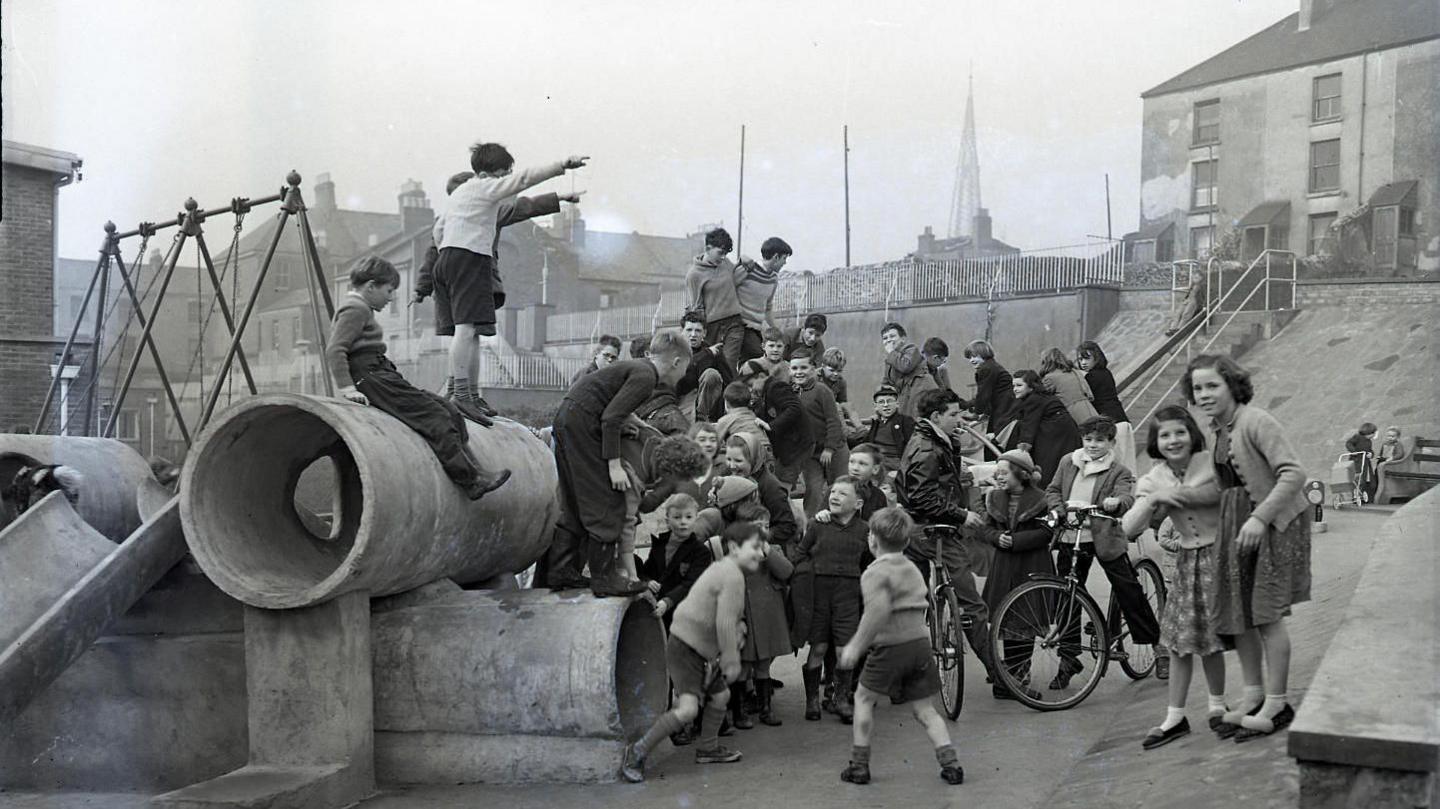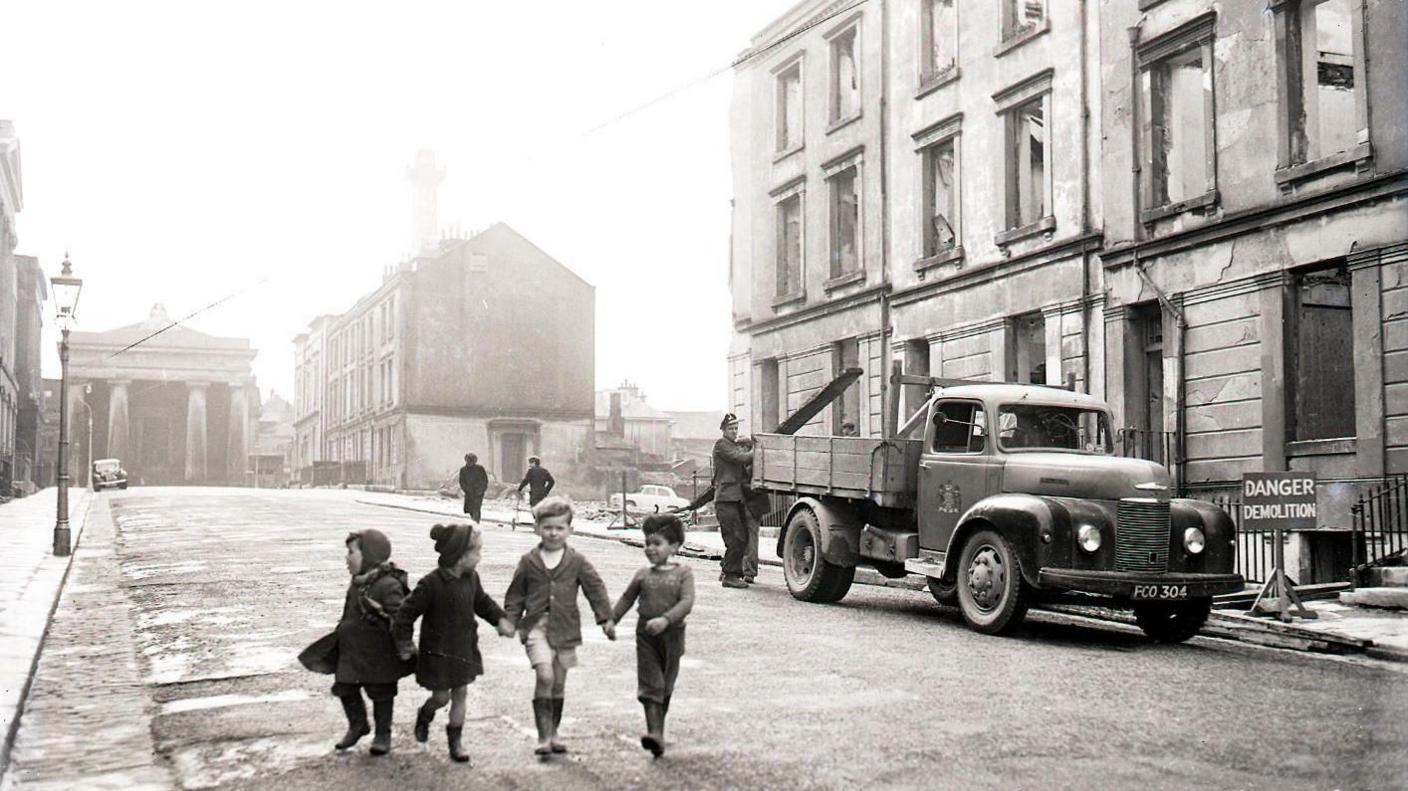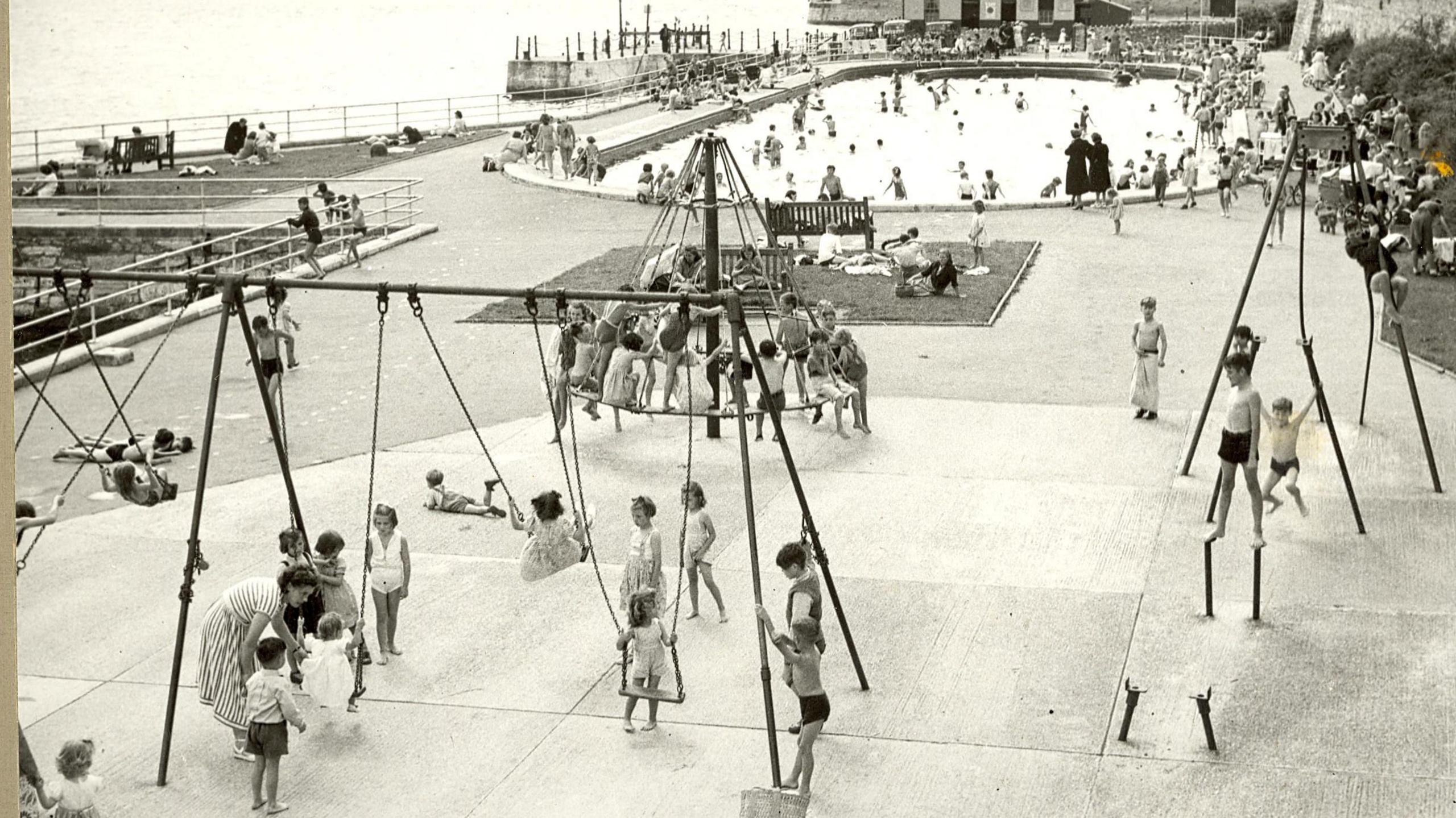Event marks 200 years of Devonport history
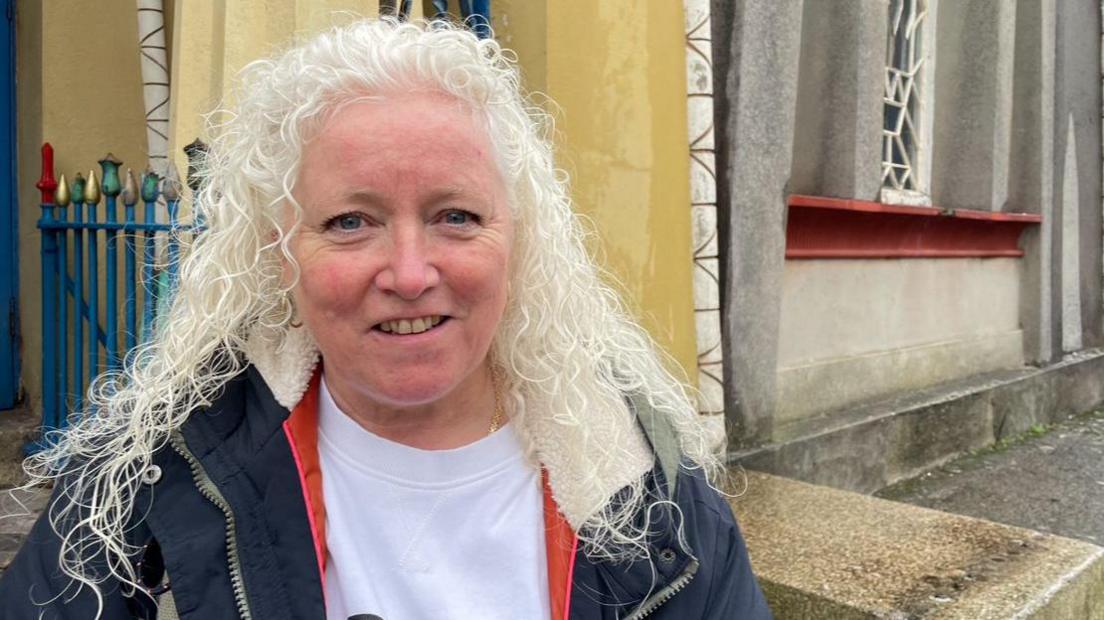
Mandi Leaves runs the Ker Street Social Club and said those living in Devonport were lucky
- Published
The history of an area of Plymouth will be celebrated at an anniversary event this weekend.
The Box museum said it was holding its recent history day on Saturday to mark the 200th anniversary of the Devonport name and has invited 6,000 residents to attend.
Archivist Stacey Anderson said the area's population in the 1820's was once larger than the city itself, adding it was originally named Plymouth Dock before a successful petition to King George IV.
Mandi Leaves, who runs the Ker Street Social Club, has been invited to the celebration and said Devonport residents were "very, very lucky" to live in the area.
'Fantastic childhood'
Ms Leaves took over the social club from her parents more than 30 years ago, adding it "wouldn't still be running it" if it was not for the community.
The history day is part of the year-long programme celebrating the naming of Devonport, external.
The museum has more than 20,000 items related to the docks and surrounding area but wants the public to bring their mementoes to the event.
A film commissioned for the anniversary will be shown in the museum's media lab gallery along with commemorative displays.
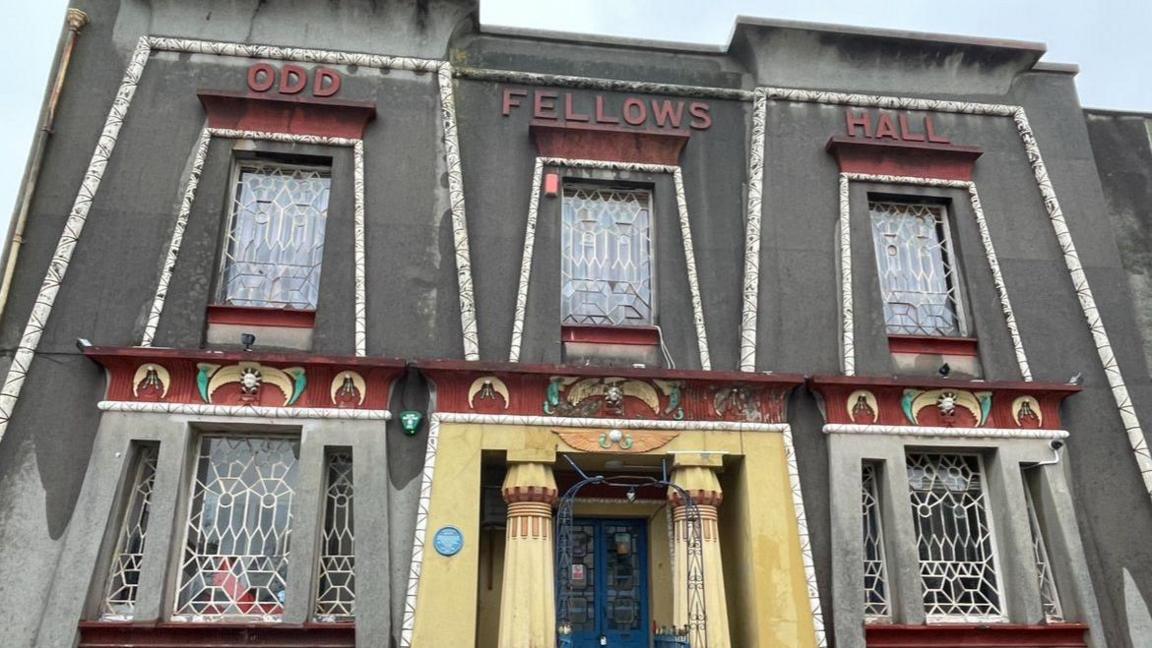
Odd Fellows Hall or The Egyptian House, now known as Ker Street Social Club, was designed by the architect John Foulston and opened in 1823
Ms Anderson said residents have "amazing histories, stories and memories that tell us so much about Devonport and how it's developed and grown".
Brian Bishop, a Ker Street Social Club visitor, said he found a bomb while playing at Mount Wise as a child.
"I had a fantastic childhood in Devonport," he said.
"I found this shell but the front of it was taken off... we took it up the police station at the back of the Guildhall.
"I told them I found this bomb at Mount Wise and they jumped up quick.
"We all laughed when they realised the front was missing."
- Image source, The Box
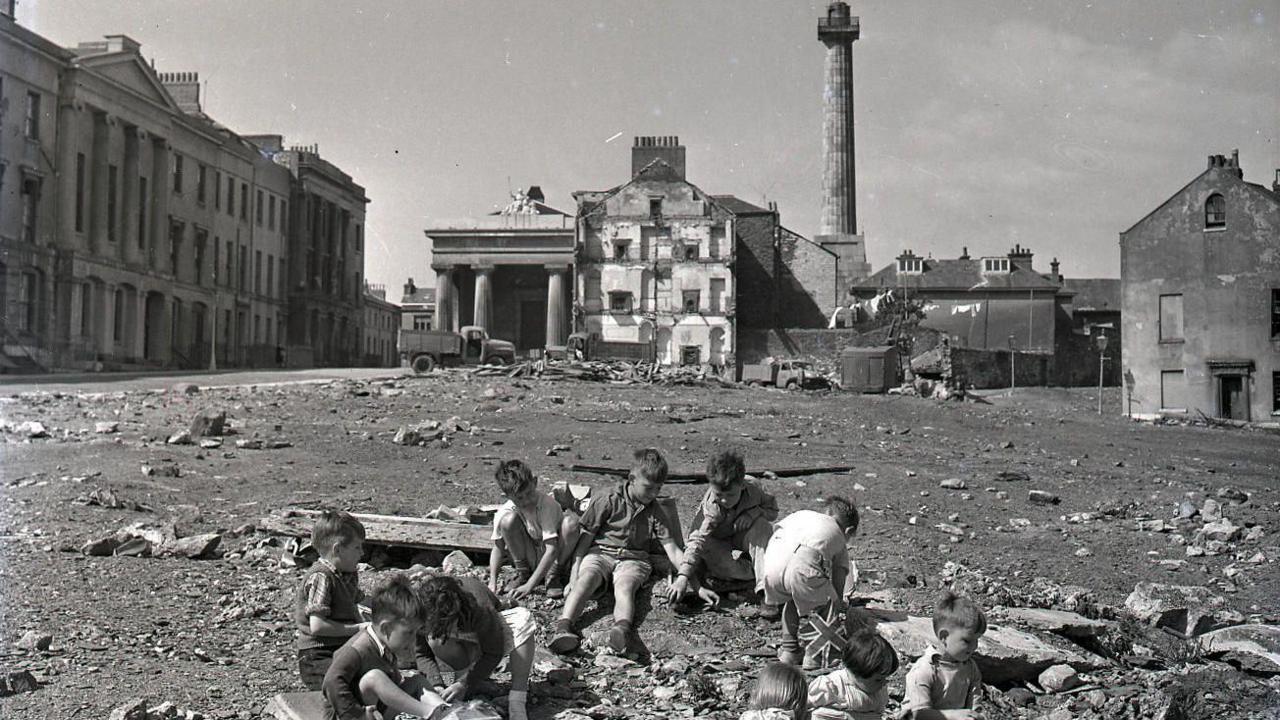
Image caption, The Box archives: Reconstruction work, Ker Street, Devonport, July 1958
1 of 4
The Royal Dockyard was opened in 1695.
It was originally called Plymouth Dock and a prosperous town grew around it filled with workers.
The area's name was changed to Devonport by Royal decree on 1 January 1824, following a successful petition to King George IV.
It experienced devastation during the Blitz in World War Two and a period of anti-social behaviour and crime in the 1980s and 90s.
But the neighbourhood around Pembroke Street led its own programme of regeneration over the last two decades illustrating the strength of community within it.
